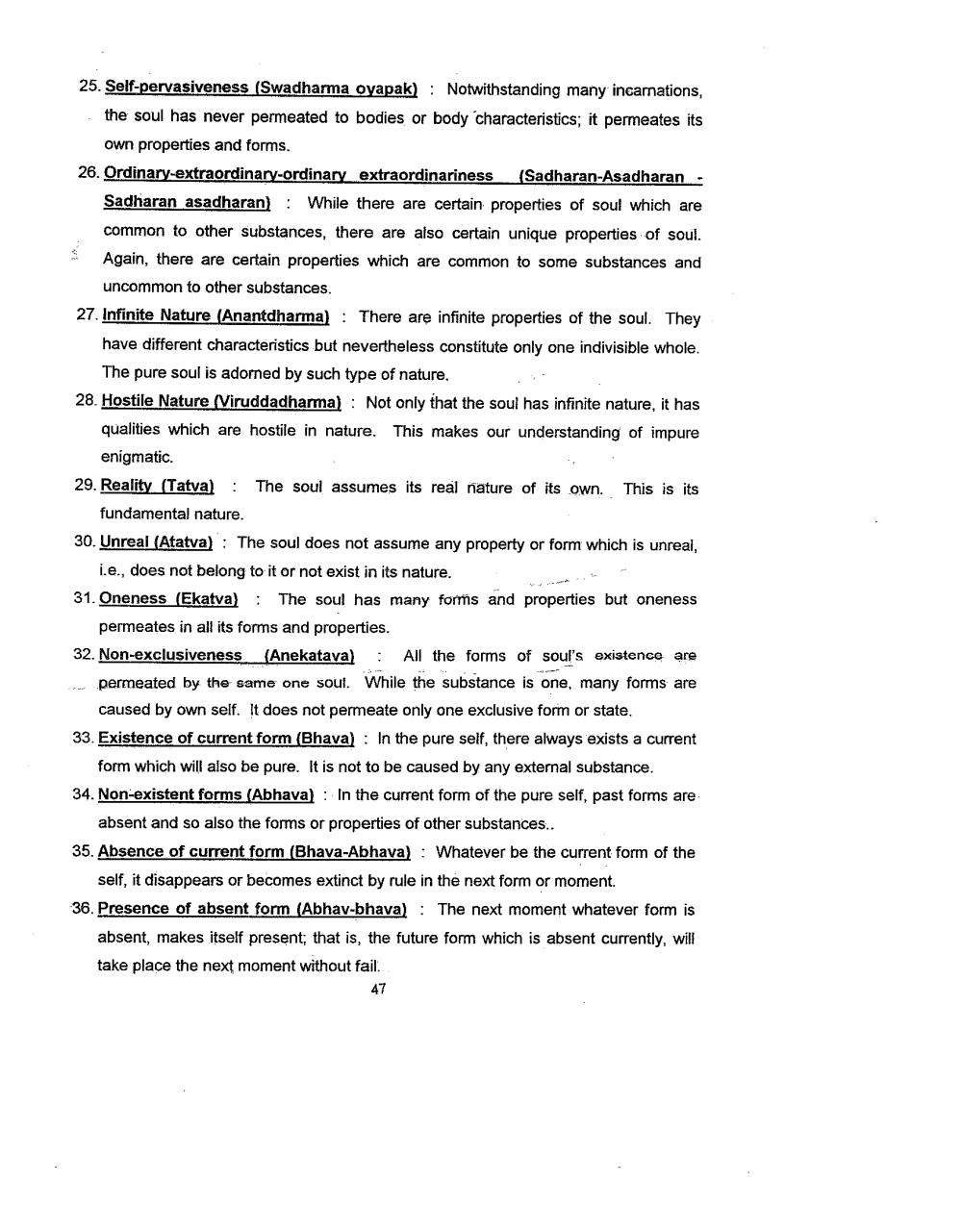________________
25. Self-pervasiveness (Swadharma oyapak) : Notwithstanding many incarnations,
the soul has never permeated to bodies or body characteristics; it permeates its
own properties and forms. 26. Ordinary-extraordinary-ordinary extraordinariness (Sadharan-Asadharan.
Sadharan asadharan) : While there are certain properties of soul which are common to other substances, there are also certain unique properties of soul. Again, there are certain properties which are common to some substances and
uncommon to other substances. 27. Infinite Nature (Anantdharma) : There are infinite properties of the soul. They
have different characteristics but nevertheless constitute only one indivisible whole.
The pure soul is adorned by such type of nature. 28. Hostile Nature Viruddadharma): Not only that the soul has infinite nature, it has
qualities which are hostile in nature. This makes our understanding of impure
enigmatic. 29. Reality (Tatya) : The soul assumes its real nature of its own. This is its
fundamental nature. 30. Unreal (Atatva) : The soul does not assume any property or form which is unreal,
i.e., does not belong to it or not exist in its nature. 31. Oneness (Ekatva) : The soul has many forms and properties but oneness
permeates in all its forms and properties. 32. Non-exclusiveness (Anekatava) : All the forms of soul's existenco are
permeated by the same one soul. While the substance is one, many forms are
caused by own self. It does not permeate only one exclusive form or state. 33. Existence of current form (Bhava) : In the pure self, there always exists a current
form which will also be pure. It is not to be caused by any external substance. 34. Non-existent forms (Abhava): In the current form of the pure self, past forms are
absent and so also the forms or properties of other substances.. 35. Absence of current form (Bhava-Abhava) : Whatever be the current form of the
self, it disappears or becomes extinct by rule in the next form or moment. 36. Presence of absent form (Abhav-bhava): The next moment whatever form is
absent, makes itself present; that is, the future form which is absent currently, will take place the next moment without fail.
47




